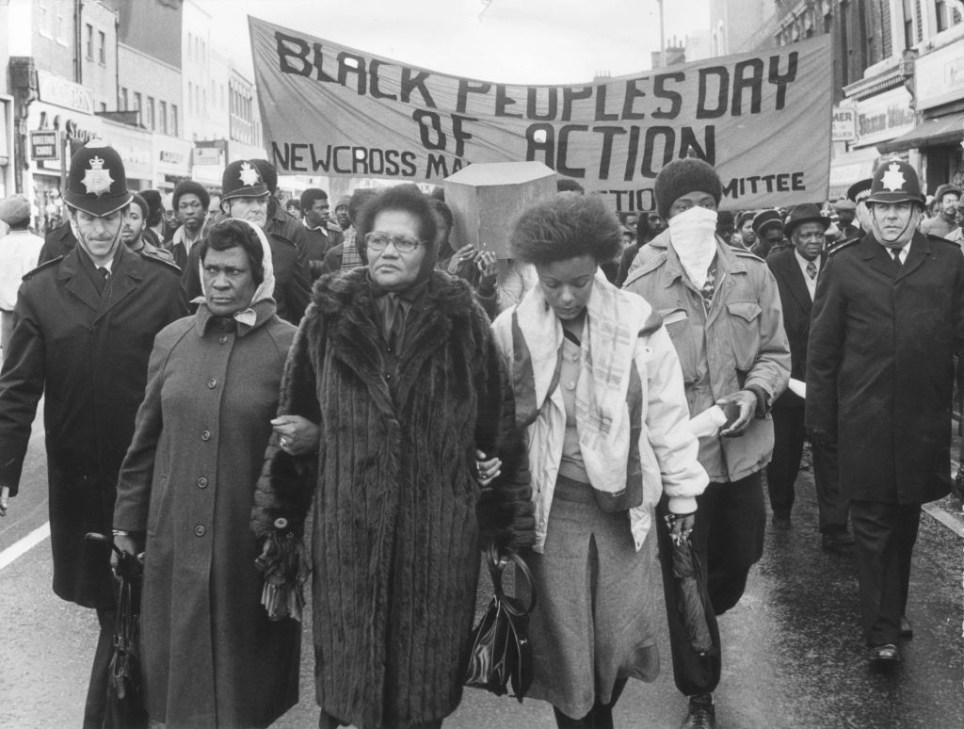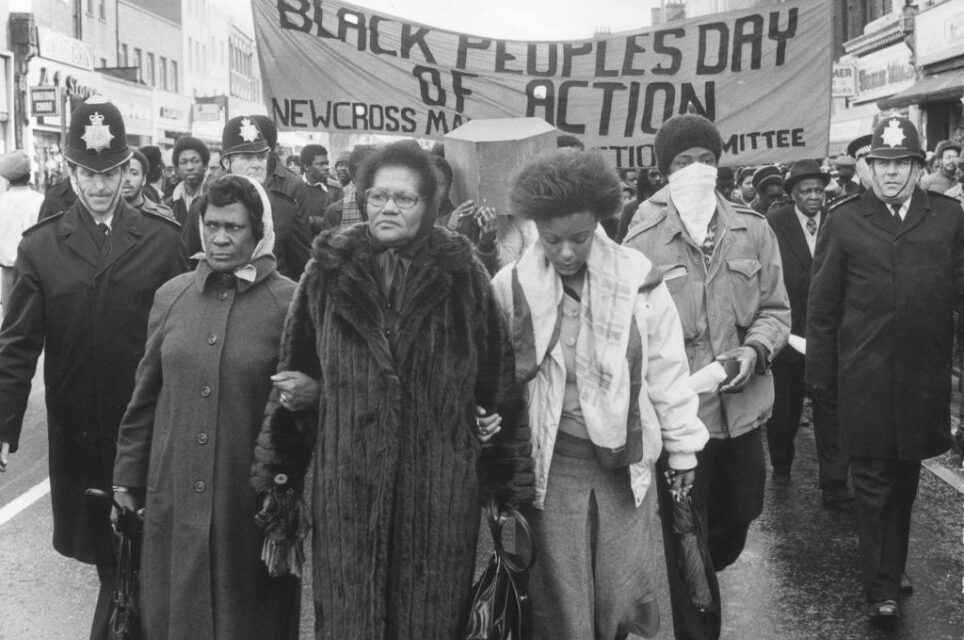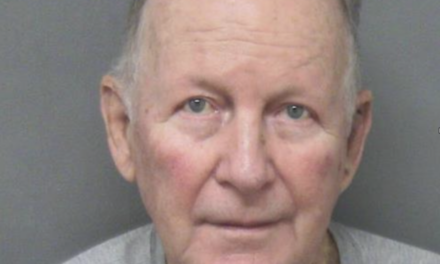
I remember the first time I heard about the Black British Panthers.
It was during a university talk about Black British civil rights movements that I learned about their existence. This group, founded in 1968, helped the Black community fight racial discrimination in jobs, housing, education, and medical and legal services.
My reaction? ‘Why hadn’t I heard about them before?’
At first, I felt silly for my ignorance, but education about Black History is still so lacking in UK schools. It’s why, for so many, learning about a moment in Black history can make us stop and think about ourselves or the Black community at large in a new way.
October, being Black History Month, is the perfect time to reflect on these identity-shaping moments and share them with others.
Personally, discovering the Black British Panthers made me realise the level of discrimination Black Brits endured when they came to this country. So much of Black history focuses on the stories of African Americans, with cultural figures like Martin Luther King, Rosa Parks and Malcom X heavily featured. But these stories, while culturally significant, don’t make us proud to be Black and British.
So, what does?
For 22-year-old Londoner Alhagi Malang, it’s a moment in much more recent history.
Alhagi was just 11 when Nicola Adams and Anthony Joshua took home gold medals at the London 2012 Olympics, but seeing them on screen made him feel part of something momentous.
‘It made me feel seen,’ he tells Metro. ‘I feel like growing up in the mid-2000s a lot of our British sporting icons were white – the likes of Beckham, Rooney and Lampard were the peak of British sporting stardom.’

But in athletics, the strong representation of Black people felt significant. His earliest Olympic memory is seeing Kelly Holmes become a household name after she won two golds in Athens.
‘It felt like she was everywhere,’ he says, ‘and everyone was proud of her regardless of their race, which is something that imprinted on me early on.’
Seeing the likes of Jess Ennis-Hill and Mo Farah represent national pride in 2012, when he was at such an impressionable age, made Alhagi feel like Britain really could have entered a post-racism society.

‘As I’ve gotten older, I’ve realised that is not the case,’ says Alhagi, who works in financial communications consultancy. ‘But the fact it did feel like that for a moment because of those Olympic icons, speaks volumes.’
Alhagi shares that there’s also a diasporic element. ‘Being black in Britain means you’re always torn between at least two homes – Britain and wherever your parents come from. Whilst that is usually a point of conflict, during the Olympics it’s a point of pride. I get to support Team GB and whatever African athlete is competing.’
With textbooks on the World Wars often focussed on white, British soldiers, Samantha Lubanzu, 39, felt both pride and sadness when she realised Black men had lost their lives for their country, too. She was 17, and walked into a community hall in Manchester’s Moss Side that had information displayed about Black soldiers throughout history.
‘I was struck with awe. For the first time, I saw images of Black soldiers who had valiantly fought in both World War I and World War II,’ she says.
‘I was proud in knowing that Black individuals had made such an immense impact on the world’s history but sad that their vital role had been overlooked for so long.
This experience made me acutely aware of the importance of recognizing and preserving the history of diverse communities, ensuring that their contributions are never again neglected or lost.’

Discovering the hidden history of Black soldiers in World War I and World War II had a profound impact on the way Lubanzu saw herself. ‘It instilled in me a greater sense of pride and self-worth,’ she says. ‘Knowing that individuals from my community had made such significant contributions on the global stage, even in the face of historical adversity, was incredibly empowering and one I want to pass on to my six young children.’
Trevor Sterling, a 56-year-old from South London, says it was a moment of personal Black history that made him re-evaluate his identity.
In 2016 Trevor, a senior partner at a law firm and chair of the Mary Seacole Trust, helped unveil the first statue of a Black female in the UK: Mary Seacole. It took 12 years of campaigning (and a fundraiser of £500,000) before Mary was finally honoured in the grounds of London’s St Thomas’ Hospital.

Mary, a nurse originally from Kingston, Jamaica, applied to work with Florence Nightingale after travelling to the UK. But, after being denied the role due to her race, she used her own limited funds to set up the ‘British Hotel’ – her own hospital on the front line of the Crimean War.
‘When we think of Black contribution in this country, we usually speak about the Windrush generation, but Mary Seacole predates Windursh and is a reminder of our contributions to the UK through time,’ says Trevor.
‘Being involved in that unveiling was really important for me as I’ve been able to help change and restore history.’
He believes that Mary Seacole is the epitome of what being a Black Brit is all about: ‘We often regard success in a material way but Mary shows that success can be defined by the values of being caring and compassionate. She really touches that basic human understanding of motherhood which I think is incredibly powerful.’

Seeing a Black woman celebrated in today’s society – albeit late – inspires and motivates Trevor in his current work. Now, a new Royal Mint coin in honour of Mary Seacole will be revealed in conjunction with Black History Month and Trevor is set to present it to the Jamaican High Commissioner and gift a coin to the Institute of Jamaica.
With October in full swing, it’s important to remember Black struggle, alongside Black achievement, throughout the month. Despite being born two decades later, the New Cross Fire of 1981 has had a profound effect on shaping 23-year-old Amza Beharry-Ruddock.
In the early hours of Sunday, 18 January 1981, a fire broke out at 439 New Cross Road in south-east London, where Yvonne Ruddock was celebrating her 16th birthday. 13 young people were killed, in what has since been ruled a deliberate attack.

Protests broke out over police reaction and lack of political acknowledgement about the tragedy.
‘The event had a profound effect on me as it was actually my auntie’s birthday party,’ Amza Beharry-Ruddock tells Metro. ‘My dad was a survivor so I know a lot about what occurred on that night.’
Amza has seen references to the fire on news segments during Black History Month, but it’s through conversations with her father where she learned about the real tragedy of that night. Her father’s siblings, Yvonne and Paul, both died.
‘After my Grandmother passed away, my family spoke about the fire more,’ she says. ‘When my dad retired he went on his own personal journey with everything that happened and decided to go into a deeper dive of the fire to try and seek justice.’

As part of his research, Amza’s father has gathered news clippings, witness statements and information regarding the police inquiries that were made at the time. Years later, the families are still seeking answers.
‘As the second generation of the New Cross Fire family, it’s impacted me as I’ve learned about how my family and the Black community were discriminated against during the 80s,’ says Amza, who now helps her dad organise exhibitions related to the fire.
‘It feels like I’m part of Black history,’ she adds. ‘And I feel like it’s a duty to make sure more of us are aware of the fire.’
Sign up to our guide to what’s on in London, trusted reviews, brilliant offers and competitions. London’s best bits in your inbox
This site is protected by reCAPTCHA and the Google Privacy Policy and Terms of Service apply.





